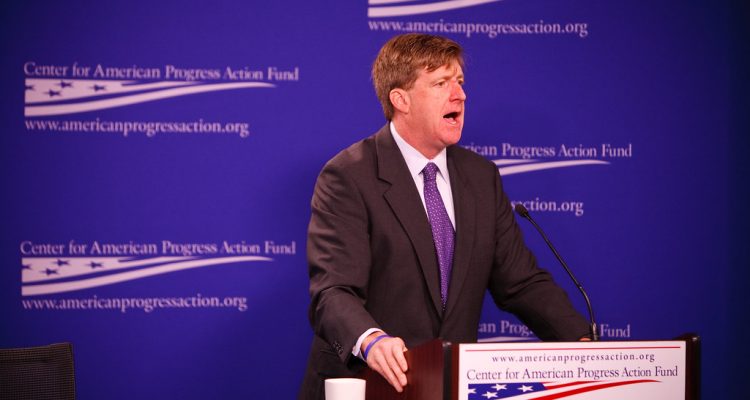By Klaudia Sokolowski
On the evening of Wednesday October 2, 2019, the audience in the Thomas J. Dodd auditorium listened intently as former Congressman Patrick J. Kennedy expressed his view on mental illness and addiction. Now, as a mental health and addiction advocate, Kennedy goes on to share his own story of addiction.
“The disease of addiction doesn’t know what substance you’re taking…If you have a problem with any substance…you have the disease of addiction. It will manifest itself in some other area of life if you don’t get treatment.”
Kennedy noted that it’s best to seek recovery as soon as you realize you have an issue; that way you don’t learn to live with it. He said the most powerful thing about recovery is the realization that you’re not going through it alone and even pointed out that UConn has its own Recovery Center for anyone in need of help or if seeking tips on how to help others with the issue.
In the past, Kennedy worked alongside former Senator Chris Dodd in order to pass the Mental Health Parity and Addiction Equity Act in 2008. Kennedy pointed out that addiction and mental illness are the same because both are illnesses of the brain. Therefore, this bill states that an illness of the mind, including addiction, needs to be covered by insurance the same way as any other physical injury is because it’s all part of the human body.
Despite this step forward, Kennedy mentioned that there is still a crisis in this country with mental illness, noting that the stigma behind mental illness may prevent many people from speaking up. He said that it’s up to each and every one of us to stand up and do something to make more of a difference.
“Part of the reason why we have a problem in this country is because everyone is anonymous that we need to have come out from underneath of church basements and actually say ..we got so many years of recovery we want to have you help our fellows.”
In response to an audience member’s question regarding how to prevent addiction in future generations, Kennedy stated that other than opening up more about the issue, part of the solution is to teach the younger generations positive coping strategies in school so that they learn how to deal with stress in a way that won’t hinder them.
Junior environmental engineer Michael M. said it was very humanizing to hear a politician discuss difficult issues like mental illness and addiction.
“I feel like politicians are very out of touch with reality… I mean, here he is, a Kennedy, you know the arguably the most powerful political family in our history and here he is, speaking like a human to other humans. Government has been so much about money and power and it hasn’t been about helping the people around you, which is what it really is, helping the people around you.”
Senior political science and music major Kayla also agreed that the personal connection in Kennedy’s speech made it better.
“I think the fact that he brought in his own experience made it much more effective when to talk about, you know, the policies and the fighting for change in the system. I really liked hearing all of the anecdotes.
Former Senator Dodd also provided his own opinion on Kennedy. “There’s no greater advocate… than Patrick Kennedy. None, when it comes to talking about these issues and doing something about it.”


